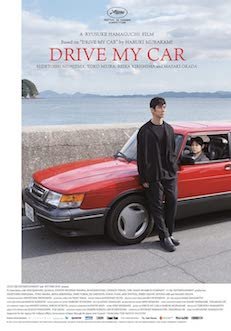Direction: Ryusuke Hamaguchi
Country: Japan
Ryusuke Hamaguchi (Wheel of Fortune and Fantasy, 2021; Drive My Car, 2021), known for his ability to transform simple plots into impactful films, continues to impress with his latest work, Evil Does Not Exist, a sublime ecological fable marked by tragic personal consequences. What started as a collaborative audio/visual project with composer Eiko Ishibashi, became a relevant piece of narrative fiction about how threatened our ecosystems and existences are.
“Balance is the key”, claims Takumi, the protagonist of the film, portrayed by assistant director-turned-actor Hitoshi Omika. He is a single father and expert in trees and plants, living in a rural alpine region near Tokyo. When a shady company, discreditably represented by two talent agents, announces plans to build a glamping site in the area, Takumi and the local community raise concerns about environmental impacts.
Sculpted with vision and purpose, this uncommonly edited film warns us of the fragility of our planet as well as the greed plaguing our modern societies. The limpid and leisurely composed images are a pure treat for the eyes, exuding a heavenly sense of peace that contrasts with the imminence of danger. An impressive breadth of realistic investment doesn’t prepare you for the nearly surreal climax, in one of those finales that are not simply given but rather prompts reflection on both harmed natural environments and the volatility of human nature.
There’s a lot to drawn from Hamaguchi’s directorial sensitivity given that it’s rare to see a drama that makes such subtle sense of its subject matter. True to his style, he solidifies his position as one of the greatest filmmakers of our times.






